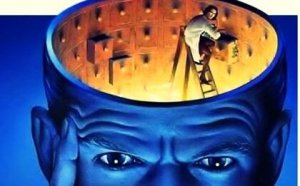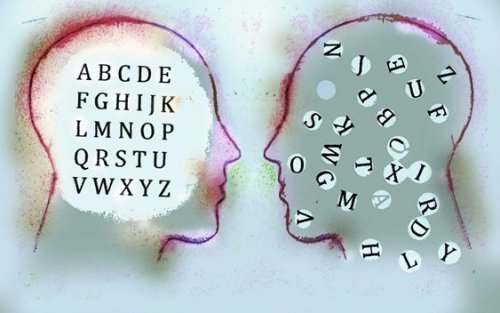Manifestations of the Unconscious in Everyday Life

Sigmund Freud, the father of psychoanalysis, noticed phenomena that other scientists of his time hadn’t paid attention to. One of them was the manifestations of the unconscious in everyday life. He wrote the book The Psychopathology of Everyday Life to describe his observations.
In this book, Freud identifies small day-to-day phenomena that are located within what we call “non-rational”. These are expressions that have no logic, so to speak. That’s where certain behaviors such as lapsus linguae, Freudian slips, and motivated forgetting are located.
One of the most interesting points of this particular topic is that these claims caused the breakdown of the idea that reason (conscious processes) was the only thing that drove human beings. The truth is that in our way of thinking, feeling, and acting there are influential aspects that don’t pass through our conscious mind.
It’s important to note that Freud pointed out that those elements that don’t pass through our consciousness are the ones we express involuntarily. Additionally, he established that said content we ignore usually ended up worsening our suffering, which leads to illnesses.
“Until you make the unconscious conscious, it will direct your life and you will call it fate.”
-Carl Jung-
Lapsus linguae: One of the most common manifestations of the unconscious in everyday life
Lapsus linguae is also known as misspeaking or speech errors. It’s when we want to say one thing and end up saying another. It almost always makes people laugh. However, Freud’s clinical eye observed how these lapses were more than just meaningless mistakes. Freudian slips are a way through which unconscious content and desires come out to the surface.
Lapses may come out verbally or in writing. This is something that could happen to anyone at any given moment. In fact, there have been several known lapses, as when Mariano Rajoy, former Spanish leader, said during a debate, “What we did, which you didn’t, is deceive people”.
Another example is when Juan Manuel Santos, former president of the Republic of Colombia and Nobel Peace Prize winner of 2016, said this during a dispute: “That doesn’t invalidate the number of votes that were given in support of corruption”. In reality, he meant, “Votes that were given in support of reelection”.
Through the previous examples, you can see that a lapsus linguae can bring a person’s guilt to the surface. They’re a way to atone with a confession. This is one of the most recognized manifestations of the unconscious in everyday life.

Motivated forgetting: Another great example of manifestations of the unconscious in everyday life
The content we have in our memory isn’t always available. We’ve all felt at least once before that part of our memory was closed right when we were looking for a specific memory. This happens especially with concrete elements such as words. What’s strange is that we forget something that we should keep in mind or that is related to things we do frequently.
For example, when we “forget” about a task someone reminded us to do many times. Or when we forget the name of a co-worker we talk to every day. Another common example of this is when our mind goes blank during a presentation after having studied the information for hours.
All of these examples are, under the paradigm of psychoanalysis, manifestations of the unconscious. What happens is that there are factors that lead us to reject certain pieces of information because they’re associated with desires, fears, or any other content we haven’t processed. We forget about the task we didn’t want to do in the first place, the name of a person we don’t like very much, or what we’re going to say before disagreeing with someone.

“Unexpressed emotions will never die. They are buried alive and will come forth later in uglier ways.”
-Sigmund Freud-
Freudian slips
Freudian slips or parapraxes are similar to lapses. However, they have nothing to do with language, but with the action itself. This happens in situations where we’re going to do something and end up doing the complete opposite without knowing why. The unconscious beats our conscious mind because our hidden desires are stronger than those we recognize.
Here’s an example of a Freudian slip. We’re going to a very dreaded dentist appointment by public transportation. We’re sure we read the route correctly. However, we end up very far from our destination because we got on the wrong bus or subway. The hypothesis would be that our rejection of the dentist appointment imposes our unconscious desire not to go.
All these manifestations of the unconscious in everyday life may reveal what we carry deep inside ourselves. They aren’t mistakes. They simply bring to the surface all those things inside of us that are longing to come out one way or another.
“From error to error, one discovers the entire truth.”
-Sigmund Freud-
All cited sources were thoroughly reviewed by our team to ensure their quality, reliability, currency, and validity. The bibliography of this article was considered reliable and of academic or scientific accuracy.
Wagner, W., Hayes, N., & Flores, F. (2011). El discurso de lo cotidiano y el sentido común. La teoría de las representaciones sociales. Barcelona: Anthropos.
This text is provided for informational purposes only and does not replace consultation with a professional. If in doubt, consult your specialist.








